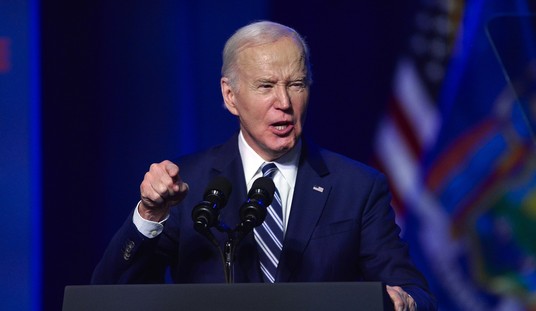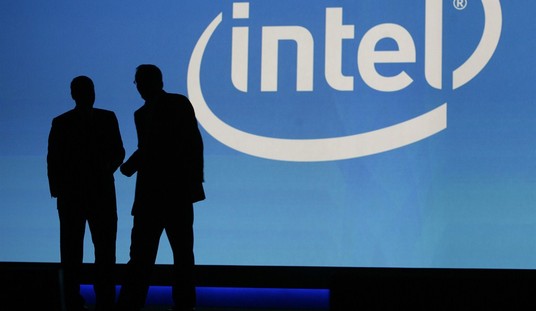“Any health care funding plan that is just equitable civilized and humane must, must redistribute wealth from the richer among us to the poorer and the less fortunate. Excellent health care is by definition redistributional.” – Donald Berwick
President Obama’s nomination of Donald Berwick as the head of the Centers for Medicare and Medicaid Services (CMS) is a gathering far less attention than a certain other nominee — but it will be getting more attention in the weeks to come, given his particularly radical agenda when it comes to health policy.
Berwick is a leading Ivy League academic and technocrat – he’s graduated from Harvard not once, but three times – and is the founder of a Cambridge-based think-tank, the Institute for Health Care Improvement. Yet the job of running CMS is hardly the same as running a small think tank or talking in broad terms about the nature of health care – CMS is essentially the world’s second largest insurance company after the United Kingdom’s NHS, covering over 98 million people and overseeing roughly $800 billion annually in taxpayer-funded health care expenditures.
Berwick is a great fan of the NHS, and worked as a consultant on the project under Tony Blair. Berwick will have the opportunity to apply the ideas he gained through that experience with the power of the CMS position, which means that his nomination holds massive ramifications for Medicare and Medicaid recipients, hospitals and doctors and, under Obama’s law, all Americans.
Berwick: Health Care Must Redistribute Wealth
Key to understanding Berwick’s views on the NHS is a speech he gave as part of a presentation offered two years ago, in which he shared his thoughts on the NHS and health care generally. You can watch the full speech here, which is excerpted above. The full video shows several lines from Berwick that are notable. He decries private sector solutions to health care problems, dismissing the “invisible hand of the market” as an “unaccountable system.” He also states:
“I am romantic about the NHS; I love it. All I need to do to rediscover the romance is to look at health care in my own country.”
And more disturbingly, in the clip above:
“Any health care funding plan that is just equitable civilized and humane must, must redistribute wealth from the richer among us to the poorer and the less fortunate. Excellent health care is by definition redistributional.”
Berwick’s Views on Why the US Should Be More Like the UK
Robert Goldberg, vice president of the Center for Medicine in the Public Interest, writes on Berwick’s views expressed in 2008 at length in this piece at the American Spectator:
“Berwick complained the American health system runs in the ‘darkness of private enterprise,’ unlike Britain’s ‘politically accountable system.’ The NHS is ‘universal, accessible, excellent, and free at the point of care – a health system that is, at its core, like the world we wish we had: generous, hopeful, confident, joyous, and just’; America’s health system is ‘toxic,’ ‘fragmented,’ because of its dependence on consumer choice. He told his UK audience: ‘I cannot believe that the individual health care consumer can enforce through choice the proper configurations of a system as massive and complex as health care. That is for leaders to do.’”
But as Goldberg points out:
“It may not be joyous or just or configured correctly, but for nearly every disease, particularly cancer, stroke, and heart attacks, Americans live longer and healthier than the English because of better care.”
Indeed, the UK has a terrible record on heart attacks, cancer, and more. A recent piece in the Telegraph runs down the OECD numbers concerning Britain’s actual outcomes from the system Berwick supports so much:
“Britain also languishes near the bottom of the breast cancer league table, with a survival rate of 78.5 per cent. The OECD-wide average is 81.2 per cent. Heart attack victims in Britain are also more likely to die after entering hospital than in most other developed nations. Around 6.3 per cent of patients who have suffered a heart attack have passed away within 30 days of entering a British hospital – significantly higher than the 4.3 per cent average. The figures also show that British life expectancy is much lower than our nearest neighbours. Men in this country can expect to live to 79 years and six months, against 81 years in France. While the report’s authors identified some successes in British healthcare – we have among the best records in Europe for screening women for breast and cervical cancer – the survey indicates that Labour’s much-trumpeted NHS investment has failed to raise standards in key areas.”
The fact is that the UK system is designed for a very different population than ours, with a very different culture — one with far fewer guns, auto accidents, better diets, and fewer young people doing dangerous things. Yet America still has advantages in dealing with these key diseases. While there are many statistics to trumpet on this point, perhaps the best example is that American life expectancy at age 65 is actually higher than Britain.
Berwick: Best System is Ration-Based Single Payer
Berwick is not so much an ideologue as a true believer in governmental efficiency over the ability of the marketplace and the consumer to direct their health care. In a recent piece in Health Affairs, written along with two colleagues, Berwick details his position on the ideal nature of health care:
“If we could ever find the political nerve, we strongly suspect that financing and competitive dynamics such as the following, purveyed by governments and payers, would accelerate interest in [our policy ideal] and progress toward it: (1) global budget caps on total health care spending for designated populations, (2) measurement of and fixed accountability for the health status and health needs of designated populations, (3) improved standardized measures of care and per capita costs across sites and through time that are transparent, (4) changes in payment such that the financial gains from reduction of per capita costs are shared among those who pay for care and those who can and should invest in further improvements, and (5) changes in professional education accreditation to ensure that clinicians are capable of changing and improving their processes of care. With some risk, we note that the simplest way to establish many of these environmental conditions is a single-payer system, hiring integrators with prospective, global budgets to take care of the health needs of a defined population, without permission to exclude any member of the population.”
As the eloquent Avik Roy wrote recently, there are serious flaws in Berwick’s approach (emphasis mine):
“First off, as William Schambra observed in National Affairs, it assumes that politicians — and politics — play no role in forming health-care policy. Even if you believe that technocrats could better organize our health-care system, Berwick’s approach only works if the narrow interests of Congressmen, labor unions, general hospitals, the AARP, etc., have no influence on the writing of law. No one who watched Democrats make the Obamacare sausage can harbor any illusions on this score.
“Secondly, as Friedrich Hayek pointed out back in 1945, the command approach is doomed to fail because its commanders do not gain accurate information about what is happening on the ground. Technocrats may believe they can marshal statistics and analysis to optimize the health-care system, but they are not omniscient. Their analyses rely on too many assumptions and on unreliable data. This is why government programs always result in colossal amounts of waste, fraud, and abuse. On the other hand, a truly free market for health insurance could efficiently allocate health-care resources to those therapies and tests that patients and doctors most need.”
Yet Berwick is not particularly ideological in his endorsement: he simply believes that the single payer model is the most efficient, and the most easily managed, approach to health care. In large part, this is because he believes in government-directed rationing of care.
In an interview on Comparative Effectiveness Research, Berwick supported an agency which would rationing health care. He particularly focused on what he perceives as the benefits of the UK’s National Institute for Clinical Health and Excellence: As Dr. Berwick said:
“NICE is extremely effective and a conscientious, valuable, and — importantly — knowledge-building system [which has] developed very good and very disciplined, scientifically grounded, policy-connected models for the evaluation of medical treatments from which we ought to learn.”
The interviewer pointed out: “Critics of CER have said that it will lead to the rationing of health care.” To which Berwick replied: “The decision is not whether or not we will ration care. The decision is whether we will ration with our eyes open.”
Here are just some of the horror stories from NICE over the past several years. Under Donald Berwick’s authority as the head of CMS, get ready to see stories like these in the pages of American papers in the years to come.













Join the conversation as a VIP Member